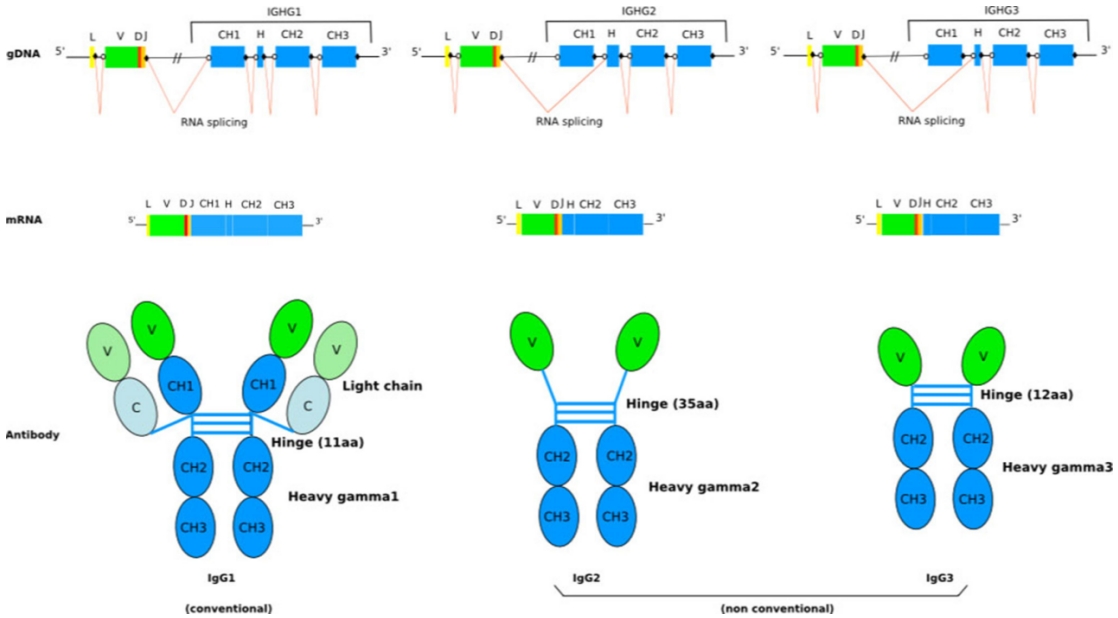
- Home
-
Services
 Leading molecular discovery services
Leading molecular discovery services
 Antibody Discover Service
Antibody Discover Service
 Technology platform
Technology platform
 Technology optimization service
Technology optimization service
- Products
- Resources
- Publication
- Contact Us

 Leading molecular discovery services
Leading molecular discovery services Antibody Discover Service
Antibody Discover Service Technology platform
Technology platform Technology optimization service
Technology optimization service
Camelid IgG1 Antibody Discovery Service
Monoclonal antibodies play a crucial role in research tools, therapeutics, and diagnostics, with numerous monoclonal antibodies already approved for treating various diseases. However, rodent-derived monoclonal antibodies, particularly murine antibodies, often have low humanization levels, posing immunogenicity risks in clinical applications and requiring extensive engineering for therapeutic use.
In addition to heavy-chain antibodies (IgG2 and IgG3), camelids also produce conventional IgG1 antibodies, which contain both heavy and light chains. These IgG1 antibodies offer a promising alternative to traditional murine and rabbit antibodies, with significant potential in therapeutic drug development.

Figure 1. The general structure of camel conventional IgG1 and the nonconventional IgG2 and IgG3. ( Ciccarese S et al. Front. Genet. 10:997.)
Advantages of Camelid IgG1 Antibodies
1. High-Specificity Antibodies Due to Evolutionary Distance from Humans
Camelids are evolutionarily distant from humans, enabling them to generate highly specific and high-affinity antibodies against a wide range of therapeutic targets. This makes camelid IgG1 particularly valuable when targeting antigens with high homology to rodent proteins or when conducting in vivo validation using mouse models.
2. Greater Antibody Diversity
Unlike highly inbred mouse strains, camelids are outbred animals, leading to a more diverse immune response to injected antigens. This diversity enhances the likelihood of generating unique and effective antibodies.
3. High Structural Homology to Human Antibodies
Camelid variable domains exhibit a high degree of structural homology to human antibodies. Their framework regions share 70%-95% sequence identity with human antibody frameworks—significantly higher than that of rodent-derived antibodies—making them more suitable for therapeutic applications.
4. Easier Humanization with Fewer Mutations
Due to their high structural and sequence similarity to human antibodies, camelid IgG1 antibodies require fewer mutations for humanization compared to rodent monoclonal antibodies. This reduces the complexity and time required for humanization while preserving the parental clone's affinity and potency.
Service Process

Service Advantages


Tel:+86 4008677715
E-mail:service@nb-biolab.com
Address:SME Incubation Park, 319 Qingpi Avenue, Chengdu, China.
Working time:9:00-18:00